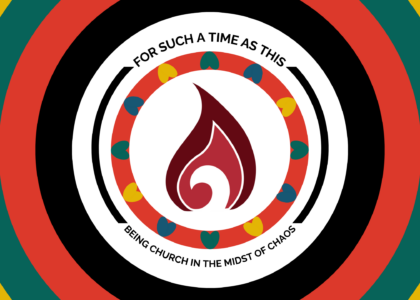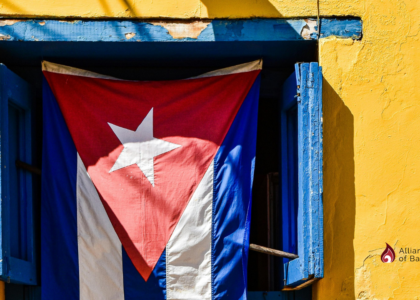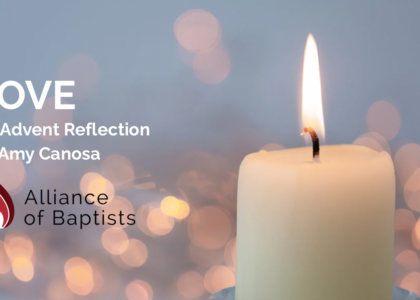by Jeffrey Vickery
Let me just say right at the start: I have problems with David’s prayer in Psalm 51:4 when he addresses God with his confession that, “against You and You alone have I sinned.” That’s a prayer based upon patriarchy, monarchy, and malarkey. We all know how it went down, David, your sin and so many other stories of men in power. Blame the beauty of the naked woman you spied on the rooftop. Cover up the crime by involving her husband unknowingly. Make your commanding general guilty by association by ordering his complicity to murder.
Grieve only after you have been condemned in public, the woman ends up pregnant, and you have a moment. Fortunately, the biblical record is honest about David’s sin even to the point that this one blot remains in his otherwise beautiful prayer that constitutes Psalm 51. I have come to think that David prays as he did, “against God only have I sinned,” because he believed the big lie that he as king was superior to all save the Divine. Yes, that must be it—David believed only God could hold him accountable because David believed himself above his subjects. David wanted God’s forgiveness because he owned enough privilege in his world not to bother with asking forgiveness from Bathsheba.
If this theological supremacy sounds familiar, perhaps like me you have been reading White Too Long by Robert P. Jones. If he says it once he says it a half dozen times in the first few chapters—the white church in America is beholden to our embedded white supremacy because our theology justifies it. Which means, by logical conclusion, our theology has to change if we are ever going to shed our tendency toward white supremacy in the church. It does us little good to ask God to forgive our racism if we don’t work to end it. Forgiveness shouldn’t make us feel good about ourselves as long as the individual harm or social injustice it causes still inflicts pain on others. Our theology of sin must not reinforce our superiority over those we have sinned against, or we will never be moved toward the holy work of justice and peace.
So let’s confess that our theology of forgiveness is mired in supremacist muck. It is self-ingratiating. It is self-justifying. It takes no one and nothing but my own soul into account. We want God to forgive us because God is [fill in the blank …] angry, disappointed, watching, judging. Then we celebrate that God has fully justified us after a brief half-sincere prayer of forgiveness because God is [fill in the blank …] ever-loving, gracious, merciful. Then we feel that Jesus is just alright with us, and we skip on our way feeling good again without having dealt with our violation of other people. I’m certain there are no monarchs in my old SC Baptist church, but someone there taught me to pray like a king: “against God alone have I sinned, and he will never not forgive me.”
Where have we been taught to right the wrong our sin has caused? To name in confession the people wounded by our sin? To do the work of reparation and reconciliation rather than salve our personal guilty angst? Oh, that would be from Jesus. Too bad our theology of forgiveness is based on the king’s poetry in the Psalm rather than Jesus’ second greatest command in the gospel. Jesus was not afraid to bend the arc of the scriptures toward justice. He added words to Deuteronomy 6 by noting we should “love the Lord our God with our minds.” He cast aside the vengeful retaliation of an “eye for an eye and a tooth for a tooth” in Exodus 21 (a truly unnerving chapter!). He reinterpreted the teaching of Moses about divorce in order to highlight the justice Jewish wives deserved. We must begin to confess our overuse of Psalm 51:4 and move past it unblinkingly toward relationships of justice and the gospel of peace making. We are not sinners saved by grace alone for we are perpetrators of sin against others. Admitting that our sin results in human victimization means that we must overcome some serious conspiracy theology about forgiveness and reconciliation. We must change and overcome our ego-centric forgiveness that justifies the way we ignore the consequences our sinful actions have on other people. We can’t just pray, ask for forgiveness, and feel okay because we have somehow satisfied our relationship with God if we have completely ignored our relationship with one another. Perhaps Jesus said it best yet again, “Lord when did we … not take care of you?” “Just as you did not do it to one of the least of these, you did not do it to me.”

Jeffrey Vickery has served alongside Tonya Vickery as Pastors of Cullowhee Baptist Church since 2002 and as an Adjunct Instructor in the Department of Philosophy and Religion at Western Carolina University since 2004. Cullowhee Baptist Church will be celebrating its 200th Anniversary in November 2021 and has been solely affiliated with the Alliance of Baptists since 2018.





Recent Comments